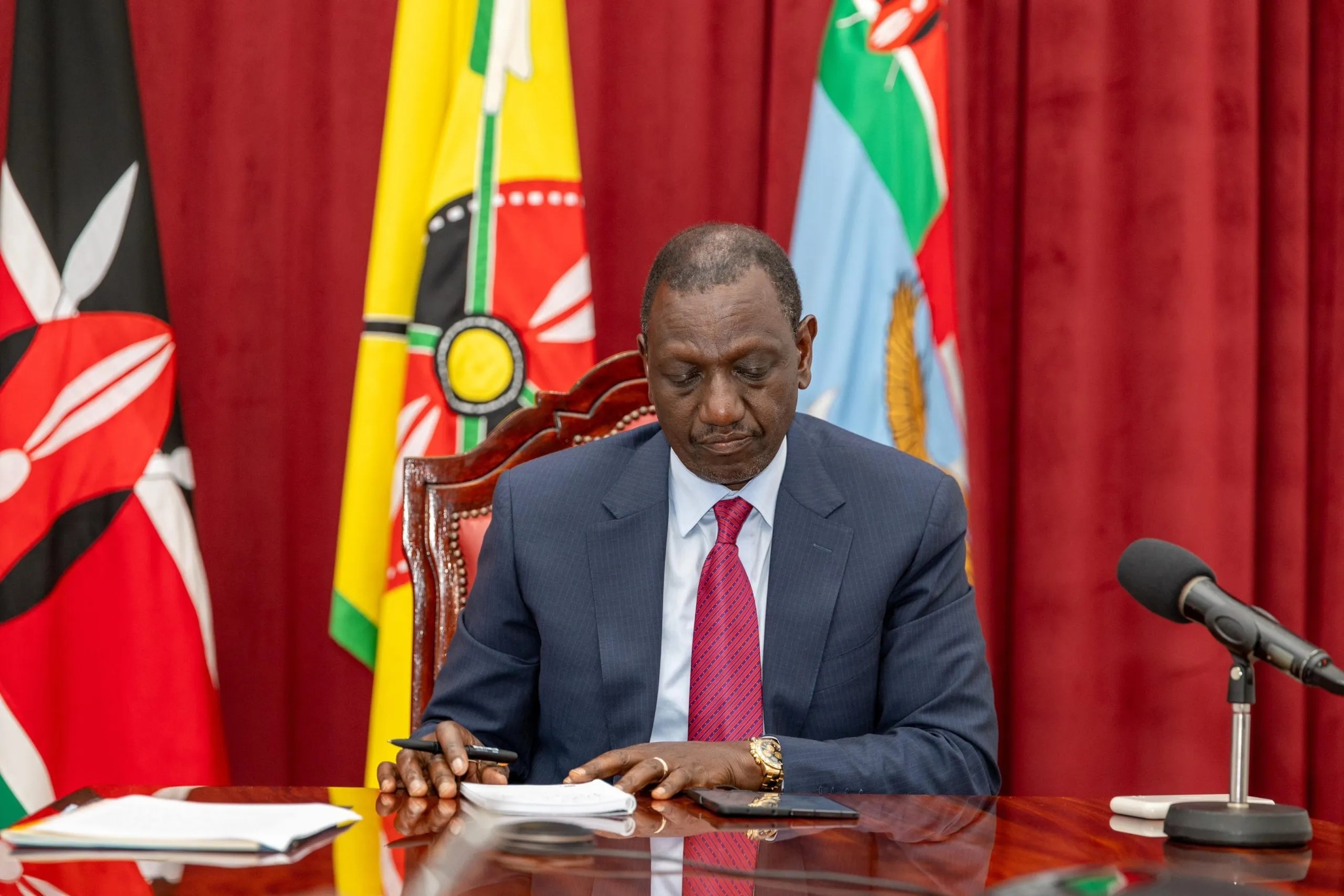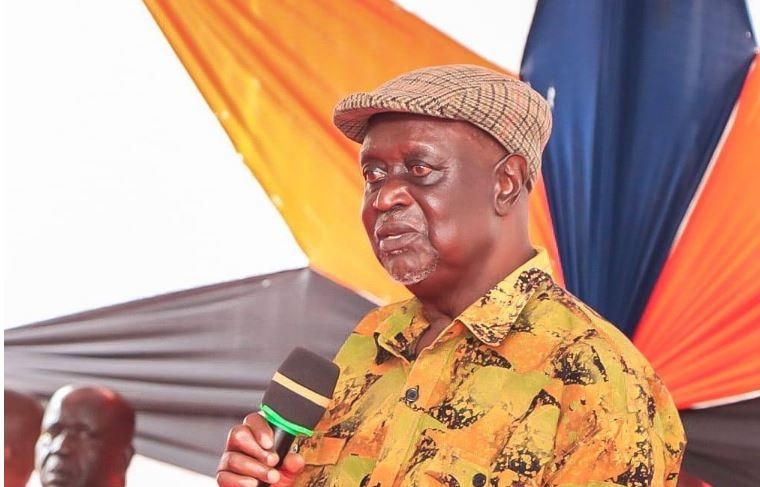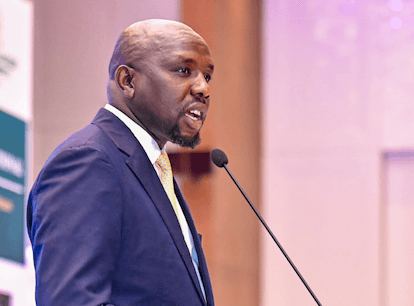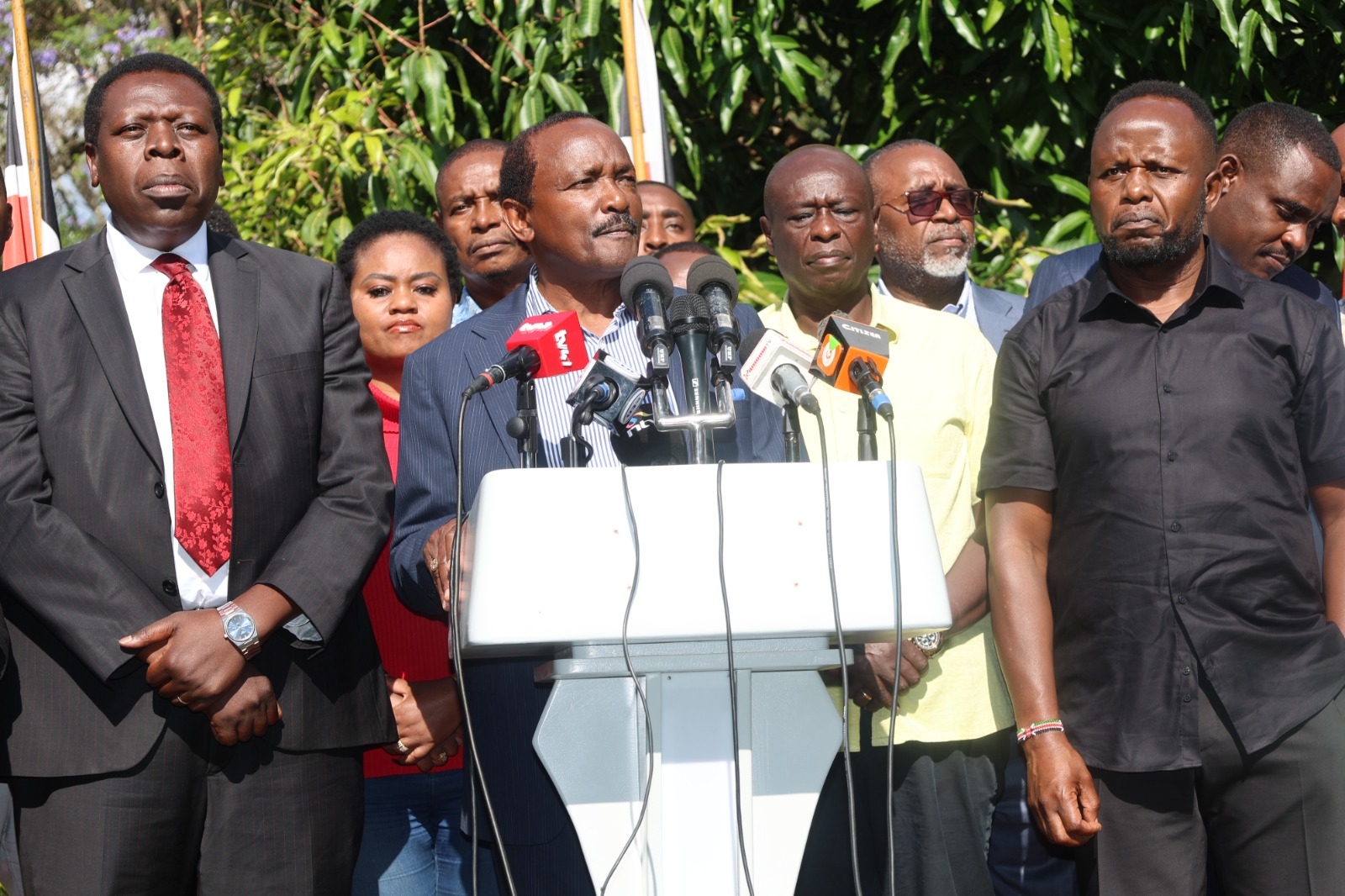 Former President Uhuru Kenyatta shaking hands with his successor William Ruto at his Gatundu home, Monday, December 9, 2024.
Former President Uhuru Kenyatta shaking hands with his successor William Ruto at his Gatundu home, Monday, December 9, 2024.
On Monday, December 9, 2024, Kenya witnessed a defining moment in its political journey as former President Uhuru Kenyatta and President William Ruto held their first publicly acknowledged official meeting since the divisive 2022 elections.
Despite the tension that marked their previous interactions, this engagement signifies an important step toward statesmanship and a renewed commitment to unity at a time when the nation faces considerable economic, social, and political challenges.
Kenya continues to deal with the enduring effects of global crises, from the COVID-19 pandemic that disrupted economies and healthcare systems worldwide to the ongoing war in Europe that has destabilized supply chains, pushing food and energy prices to unprecedented heights.
Domestically, the nation is burdened by high living costs, escalating public debt, rising unemployment, and pressing governance issues, including the long-awaited reform of the Independent Electoral and Boundaries Commission (IEBC).
In such a climate, it has become more urgent than ever for leaders to transcend personal and political differences in pursuit of solutions that serve the collective well-being of all Kenyans.
The meeting between President Ruto and former President Kenyatta lays emphasis on the importance of dialogue and the necessity for inclusive leadership in leading Kenya through these turbulent times.
President Ruto’s administration is uniquely positioned to harness this momentum by broadening the inclusivity of his government, ensuring that no Kenyan is left behind, irrespective of their political allegiance or background.
It is commendable that the President took the first step by extending an olive branch to ODM, signalling a commitment to embracing diverse perspectives in governance.
There is growing optimism that the broad-based government already in place will evolve into an even more inclusive and accommodative entity.
This inclusivity must transcend mere political interests, shifting toward addressing the broad spectrum of national priorities.
A truly broad-based government must represent a rich
diversity of regions, communities, and viewpoints while focusing on critical
issues such as economic recovery, job creation, electoral reforms, and social
equity.
History has consistently shown that nations thrive when their leaders prioritize inclusivity.
Exclusion breeds division and political antagonism, often derailing attention from more pressing national priorities.
By fostering an environment that encourages dialogue and collaboration, President Ruto's administration has created a unique opportunity to transform political goodwill into tangible benefits for all Kenyans.
Opposition leader Raila Odinga’s willingness to engage in dialogue and collaboration for the common good of the nation deserves recognition.
His consistent call for broad representation, coupled with his aspirations for the chairmanship of the African Union Commission (AUC), strengthens the vision of portraying Kenya as a politically stable, united, and forward-thinking nation.
By embracing a spirit of inclusivity and engaging voices from all sides of the political spectrum, President Ruto is creating an atmosphere where all Kenyans feel a shared sense of ownership in the country’s progress.
The timing of this engagement aligns with critical national conversations, including the pressing need for electoral reforms, particularly the restructuring of the IEBC, to ensure free, fair, and credible future elections.
Going by the recent announcement by US incoming Trump administration DOGE advisor Ron Paul, Kenya must address the potential impact of shifting global policies, such as changes to US foreign aid, which could have significant implications for Kenya’s key sectors like health, education, and agriculture.
On the domestic front, the urgent need to lower the cost of living, effectively manage subsidies, and foster job creation demands a united leadership front.
President Ruto's progressive approach to subsidies, such as the production-based subsidy program, marks a significant departure from the traditional consumption-based models.
However, these challenges require contributions from all sectors of society—politicians, civil society, and the private sector alike.
Political bickering, which fails to offer concrete solutions, serves only to hinder national progress.
A government that embraces inclusivity can tap into the collective wisdom and strengths of diverse stakeholders, crafting practical solutions that resonate widely.
President Ruto’s leadership must continue to embody the spirit of inclusivity—not merely as a political tool, but as the cornerstone of national cohesion and sustainable development.
By ensuring that the broad-based government remains a platform for genuine dialogue and inclusivity, his administration can foster a collective patriotism that prioritizes the nation's progress over partisan conflict.
The engagement between President Ruto and former President Kenyatta sends a powerful message both to the Kenyan public and the international community: Kenya’s leadership values unity and is committed to addressing the country’s challenges with a collaborative, solution-oriented approach.
This commitment will resonate deeply with ordinary Kenyans, who have grown weary of political quarrels that do little to alleviate their daily struggles.
An inclusive approach will also strengthen Kenya’s standing on the regional and international stage.
A unified, stable Kenya can more effectively advocate for infrastructure investments, attract foreign partnerships, and support Raila Odinga’s candidacy for the AUC chairmanship, solidifying the country's role as a regional leader.
While the meeting between President Ruto and former President Kenyatta is a powerful symbol of political maturity, symbolism alone will not bring about meaningful change.
This dialogue must translate into concrete actions that prioritize inclusion, shared responsibility, and lasting solutions.
The President’s continued commitment to nurturing an inclusive, accommodative government will determine whether this moment is a fleeting gesture or a defining turning point in Kenya’s political and economic trajectory.
As the nation confronts its current challenges, the focus must shift from divisive politics to collective solutions.
This moment presents an invaluable opportunity to prove that collaboration, inclusivity, and progress are not mere ideals—they are the very foundation upon which Kenya's future can be built.
By embracing these principles, President Ruto has the chance to lead a united Kenya towards a prosperous future, leaving behind a legacy of unity, stability, and visionary leadership that will drive national development and economic progress.
Let us now embrace more work and less politics in the
national interest.
Fwamba NC Fwamba is the Chairman of the National Alternative Leadership
Forum





















